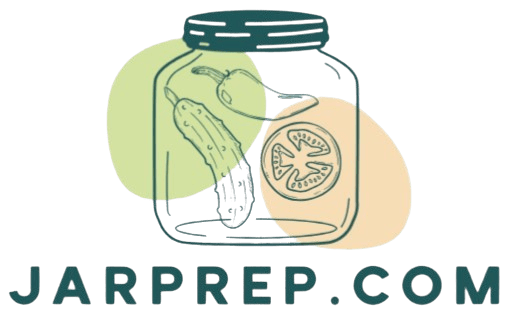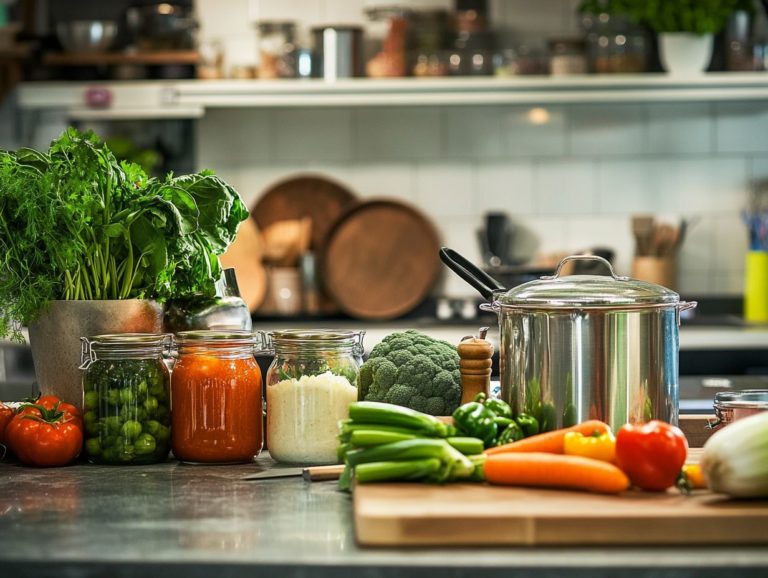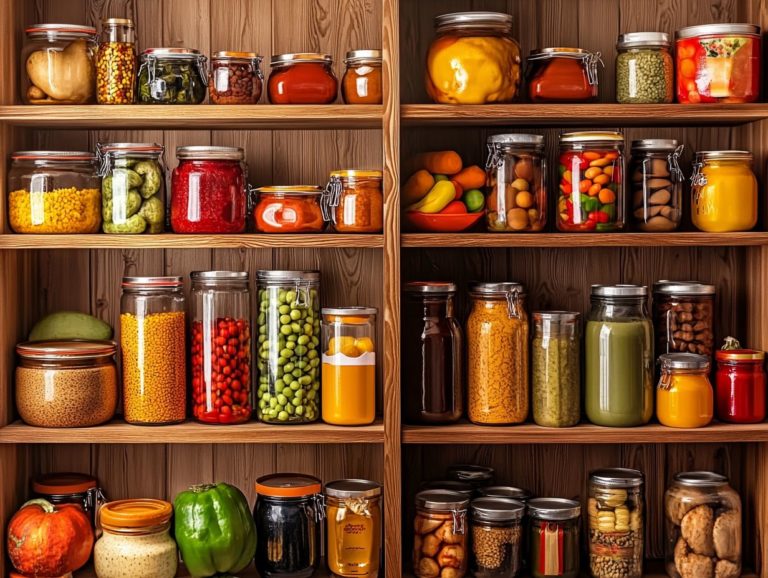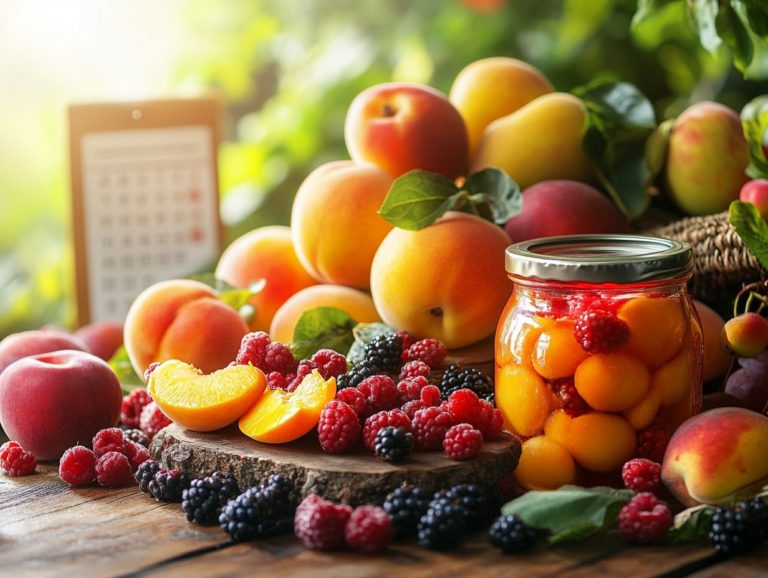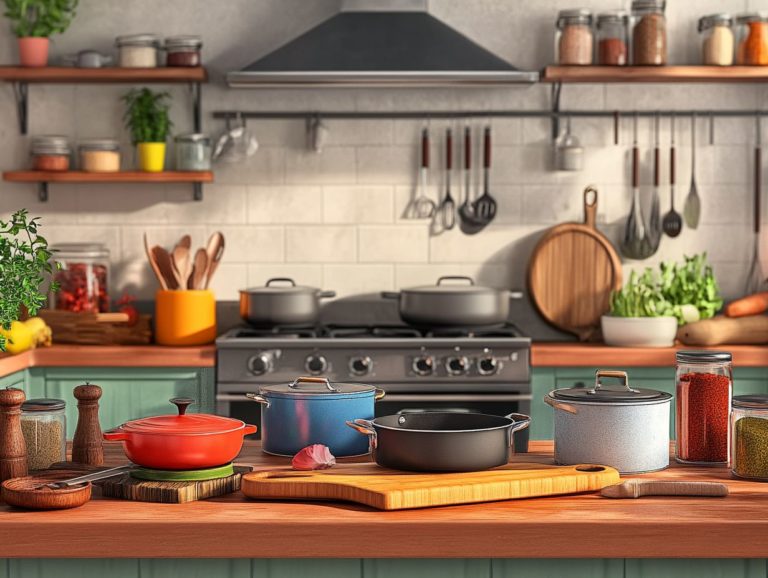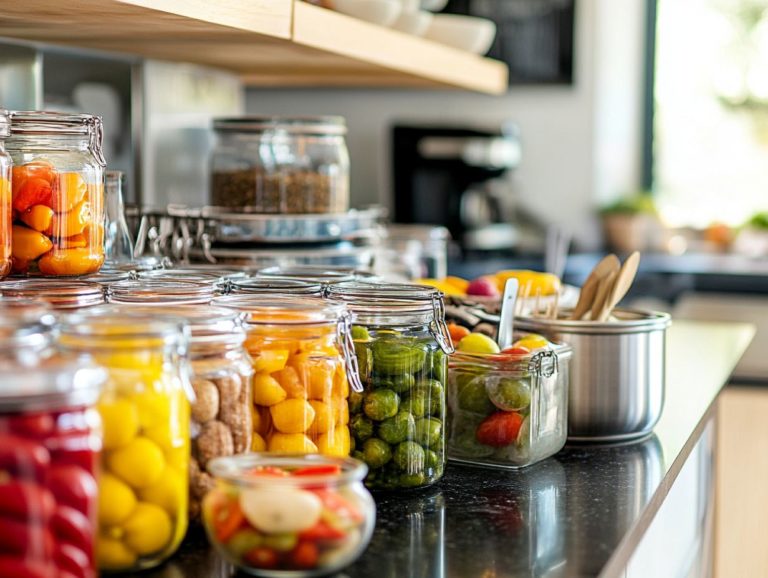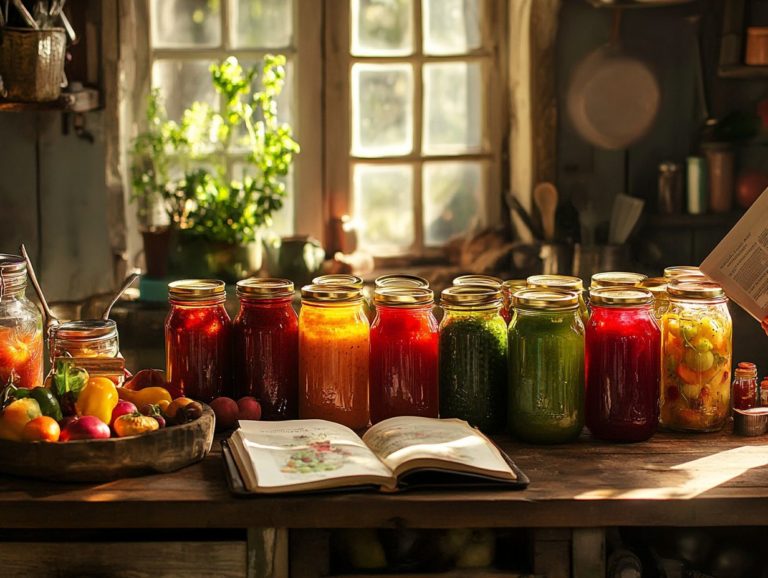Can I Can Herbs and Spices?
Canning isn t limited to just fruits and vegetables; it s also an exceptional way to preserve your favorite fresh herbs and spices.
Consider the myriad benefits of home canning, from extended shelf life to unparalleled convenience. You’ll discover a step-by-step process for safely canning herbs while exploring the best varieties to use.
If canning doesn t quite resonate with you, don t worry You can also explore other ways to preserve your herbs and spices.
Prepare to elevate your culinary game to new heights!
Contents
Key Takeaways:
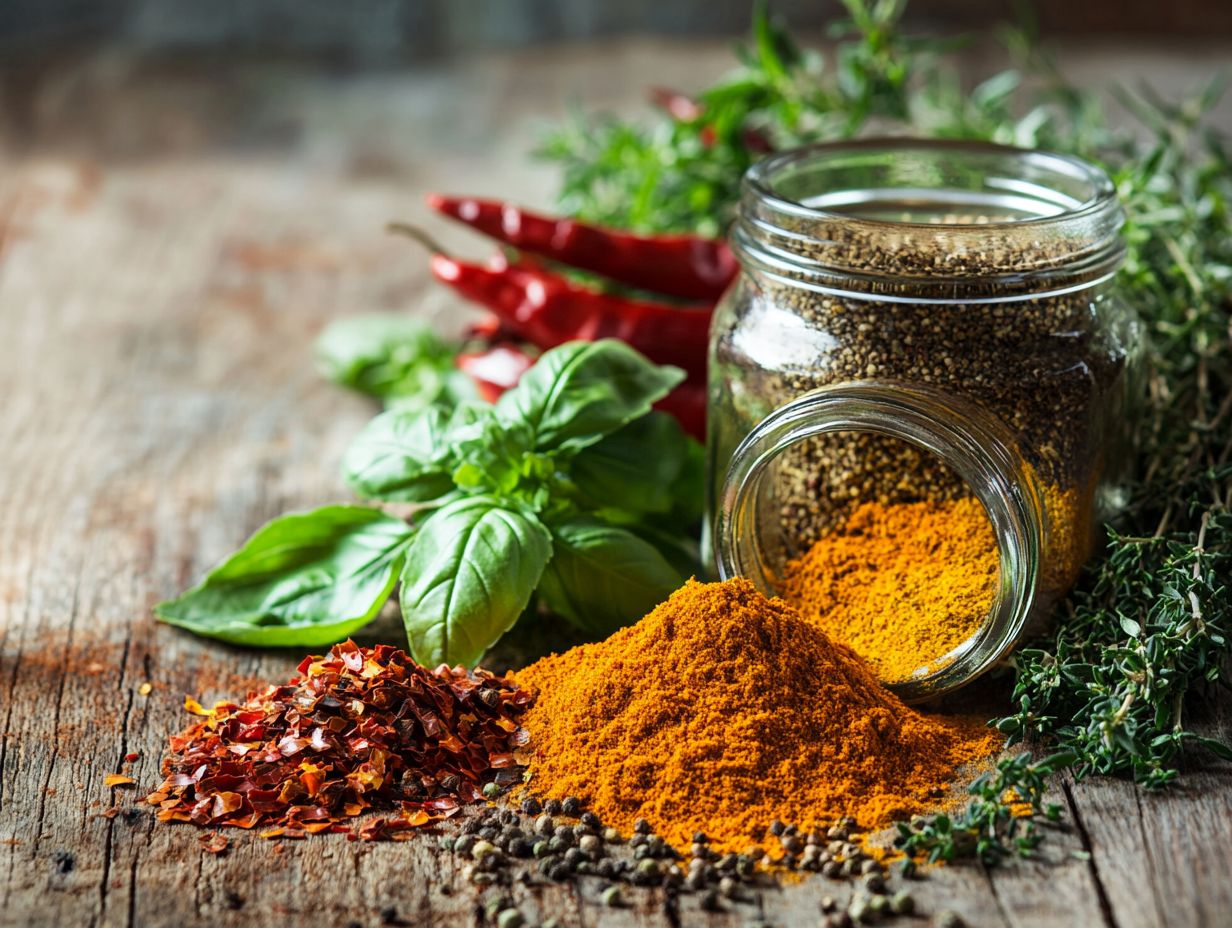
- Canning herbs and spices provides extended shelf life and convenience, making it an excellent preservation method for these ingredients.
- Proper safety considerations are crucial when canning herbs and spices to prevent contamination and spoilage.
- Discover the best methods that suit your needs! While canning is popular, there are also alternative ways to preserve herbs and spices, such as drying or freezing.
What is Canning?
Canning is an exceptional method of food preservation that enables you to store fruits, vegetables, and other foods for extended periods while retaining their delightful flavors and nutritional benefits.
By following tested recipes and adhering to standards set by the U.S. Department of Agriculture to ensure food safety, you can engage in this rewarding culinary technique, crafting safe recipes that last for months, if not years.
This exciting process involves mastering canning techniques, like pressure canning and water bath canning, to ensure safety and prevent spoilage.
Historically, canning emerged in the early 19th century as a solution to food scarcity, allowing armies and sailors to access preserved provisions. Its significance has only increased over the decades, particularly as modern food safety practices highlight the importance of controlling bacterial growth.
Food scientists play a vital role in this process, conducting research to develop and test these preservation methods, while extension agents diligently educate communities on safe canning practices. This collaboration ensures that you not only enjoy your preserved foods safely but also contribute to a sustainable approach to food storage.
Benefits of Canning Herbs and Spices
Canning herbs and spices presents a wealth of advantages, chief among them an extended shelf life that allows you to savor fresh flavors even in the off-season.
This technique ensures your pantry is stocked with vibrant ingredients and invites creative diversity into your culinary repertoire, enhancing your creative cooking.
By employing proper canning methods like vinegar substitution or salt sugar adjustments you can elevate meal preparation and explore a broad array of captivating flavor profiles.
Extended Shelf Life and Convenience
One of the standout benefits of canning is the impressive shelf life it provides, making it a smart choice for anyone who wants to stock up on vibrant herbs and spices without worrying about spoilage.
By following safety guidelines and utilizing tried-and-true recipes, you can relish homemade canned goods that are not only delightful but also safe to enjoy.
This convenience transforms your meal prep into a more efficient and pleasurable experience, allowing you to swiftly reach for ready-to-use ingredients.
For example, a jar of pickled peppers can elevate even the simplest sandwich, while preserved tomatoes can serve as a robust base for hearty sauces, saving you both time and effort on those hectic weeknights.
Grasping essential food preservation techniques ensures that the nutritional value and flavor of your ingredients remain intact over time. With a focus on safety and quality, you can confidently craft meals that showcase your culinary flair, infusing a touch of homemade goodness into your everyday cooking.
How to Can Herbs and Spices
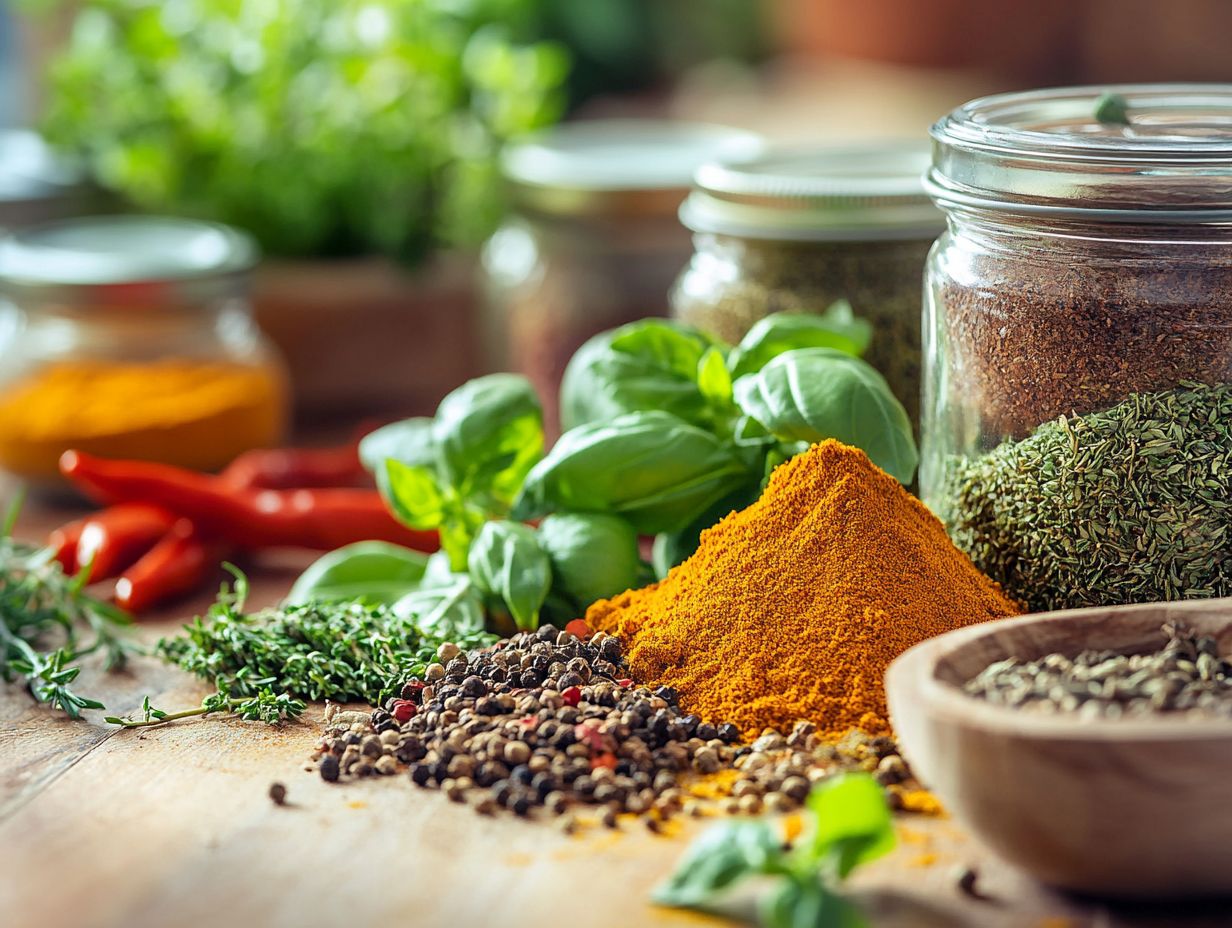
Canning herbs and spices is truly an art form that demands precise techniques to ensure both safety and the preservation of flavor.
This comprehensive step-by-step guide will enable you to embrace this invaluable culinary skill with confidence.
By adhering to best practices and selecting the right jar sizes and processing times, you can craft delightful canned products that will elevate your culinary endeavors to new heights.
Start preserving your favorite herbs today and taste the difference!
Step-by-Step Guide
Ready to elevate your cooking with delicious canned herbs and spices? This step-by-step guide for canning herbs and spices is designed to help you navigate the process safely and efficiently, with a strong emphasis on basic food safety rules. You ll learn about understanding pH levels (which indicate how acidic or alkaline a substance is) and making necessary recipe modifications to achieve optimal results.
By following this guide, you can create delicious and safe canned products that will enhance your cooking experiences.
First and foremost, it’s crucial to understand the key stages of canning, from preparation and sterilization to sealing and storage. Monitoring pH levels is essential; it ensures that your final product is not only flavorful but also safe for consumption, as the right acidity can inhibit harmful bacteria growth. Choosing the right recipe modifications like vinegar or lemon juice can significantly influence both flavor and safety.
Take each step with care, and remember that a solid understanding of safe canning practices will allow you to preserve the vibrant essence of herbs and spices for your future enjoyment.
Safety Considerations
Understanding safety considerations is essential when it comes to canning. Improper techniques can result in food contamination and spoilage, ultimately defeating the purpose of food preservation.
By following USDA guidelines and employing best safety practices, you can confidently craft canned goods that are not only delicious but also safe for consumption.
Preventing Contamination and Spoilage
To prevent contamination and spoilage during the canning process, it’s crucial to adhere to rigorous food safety measures and proper canning techniques that significantly reduce risks. By grasping key practices, such as preparing jars correctly and monitoring the level of acidity, you can ensure that your culinary creations remain safe and delicious over time, fostering a strong canning community.
One effective method is to thoroughly sterilize all your canning equipment jars, lids, and utensils before use, ensuring adherence to food safety. This simple step minimizes the risk of unwanted bacteria. You should also frequently check the pH levels of your mixtures; maintaining the right balance can inhibit the growth of harmful pathogens.
For instance, pickling vegetables often necessitates a specific acidity level, easily achieved by adding vinegar or lemon juice. Understanding the role of acidity in this context not only elevates flavor but also ensures a safer product, allowing you to enjoy your preserves with complete peace of mind.
Best Herbs and Spices for Canning
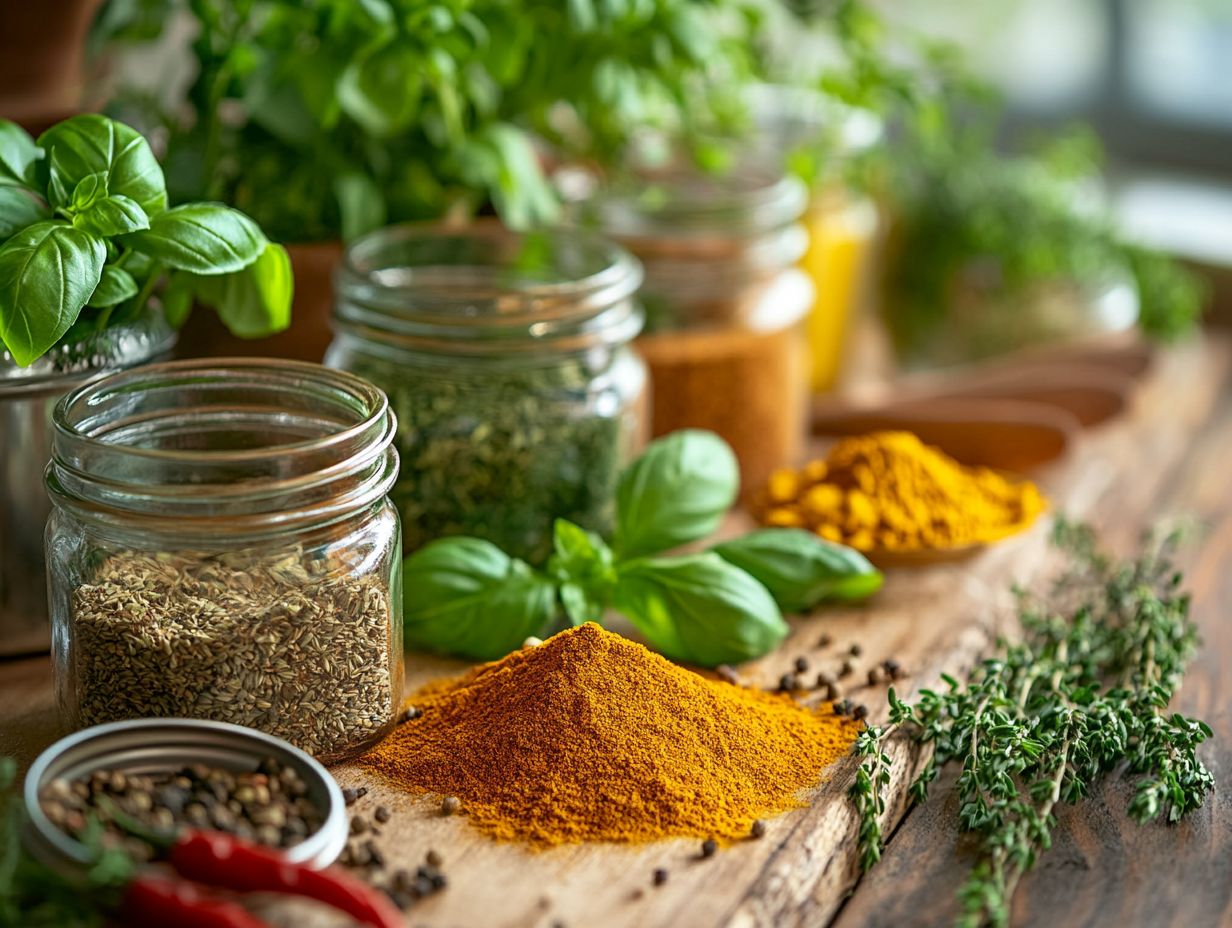
When selecting herbs and spices for canning, it’s essential to choose varieties that not only preserve beautifully but also elevate the flavors of your culinary masterpieces, making your meal prep more enjoyable.
This guide will highlight the finest herbs and spices for canning, concentrating on recommended varieties that have demonstrated their effectiveness in tested recipes.
Recommended Varieties and Recipes
The recommended varieties of herbs and spices for canning include thyme, rosemary, and dill each one offering unique flavors that can elevate a wide range of dishes. This section presents a curated selection of tested recipes that demonstrate how to can these ingredients effectively while allowing for subtle flavor adjustments.
For instance, thyme shines in savory vegetable blends and takes tomato sauces to new heights, showcasing the creative cooking possibilities. Rosemary, on the other hand, adds a bold aroma to meats and pickled vegetables, creating an unforgettable experience. Dill, with its bright and slightly grassy flavor, is a classic choice for pickling cucumbers but also enhances beans and seafood dishes beautifully.
Utilizing techniques like hot water canning or pressure canning ensures that these herbs retain their vibrant flavors while maximizing preservation methods. By experimenting with the ratios of these herbs, you can create exciting new culinary masterpieces, making the art of canning not only practical but also a wonderfully creative endeavor!
Alternatives to Canning
While canning is popular for preserving foods, you’ll discover exciting alternatives that keep your ingredients fresh! Explore methods like drying, freezing, and fermenting. Each brings unique benefits and opens up a world of cooking options for your kitchen endeavors.
These methods are versatile and invite experimentation, allowing for flexible tweaking in your recipes.
Other Preservation Methods for Herbs and Spices
Preservation methods such as drying, freezing, and fermenting offer thrilling ways to extend shelf life and keep your favorite ingredients flavorful.
For instance, with drying, you can choose between air-drying or using a dehydrator to concentrate the essence of herbs like thyme or basil. This makes them potent additions to your dishes all year round.
Freezing is another fantastic option, especially for preserving the vibrant colors and essential oils of fresh herbs like cilantro or parsley. Just blend them with a bit of water and freeze in ice cube trays for easy access whenever you need a burst of freshness.
Fermentation introduces unique flavors while keeping herbs like dill or rosemary fresh. This process promotes beneficial bacteria that enhance taste and offer health benefits.
Each technique serves as a creative outlet, enabling you to enjoy seasonal herbs long after the harvest.
Frequently Asked Questions
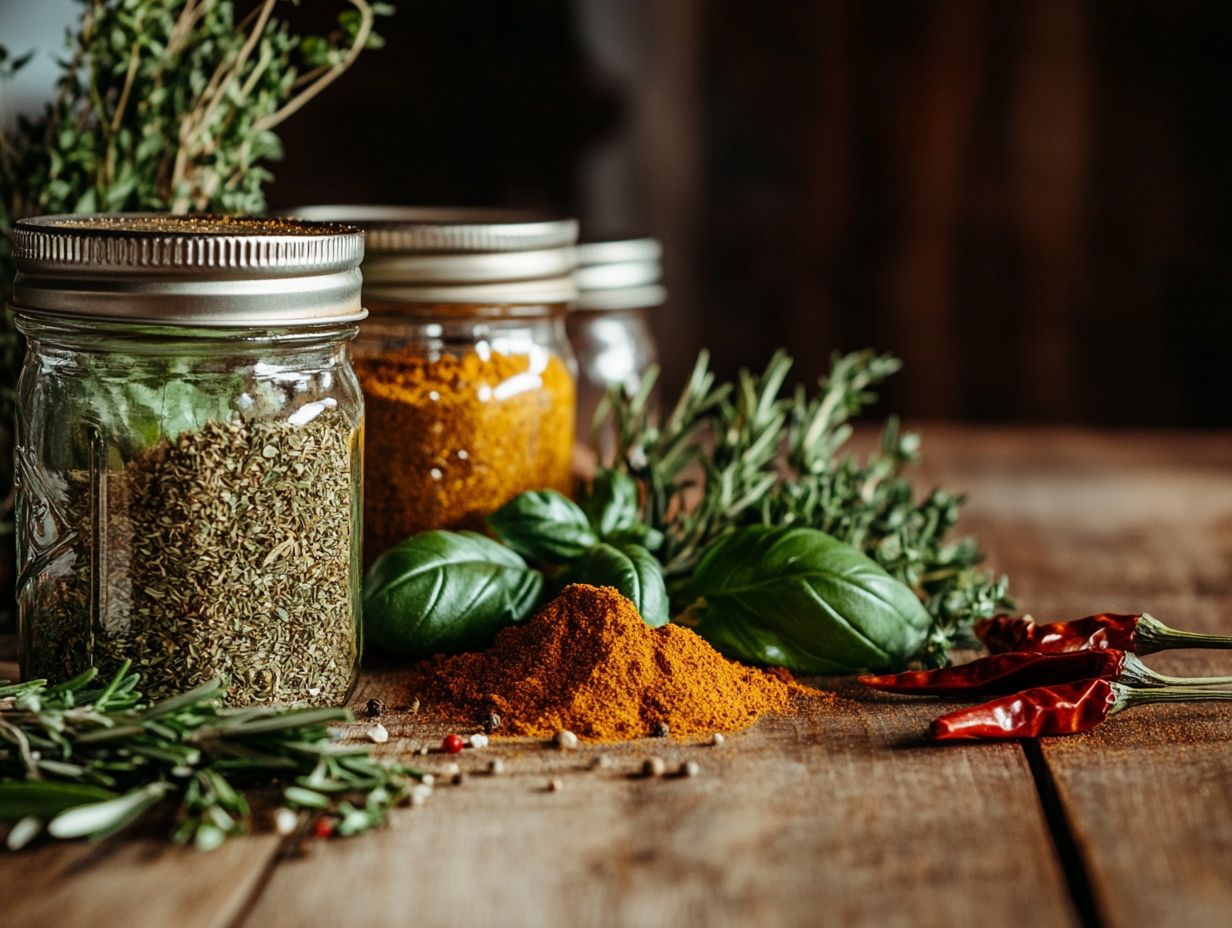
Can I Can Herbs and Spices?
Yes, you can can herbs and spices to preserve them for later use.
What does it mean to “can” herbs and spices?
Canning refers to the process of preserving food in an airtight container by heating and sealing it.
What types of herbs and spices can be canned?
- Basil
- Thyme
- Cinnamon
- Cumin
Why would I want to can herbs and spices?
Canning helps to extend their shelf life and retain their flavor and potency for longer periods.
What equipment do I need to can herbs and spices?
You will need canning jars, lids, a water bath canner, and basic kitchen tools such as a pot and tongs.
Are there any safety precautions I should take when canning herbs and spices?
Yes, it is important to follow proper canning procedures to avoid contamination and properly preserve your herbs and spices. Always use fresh, high-quality ingredients for the best results.
Ready to start preserving? Explore these methods today!
